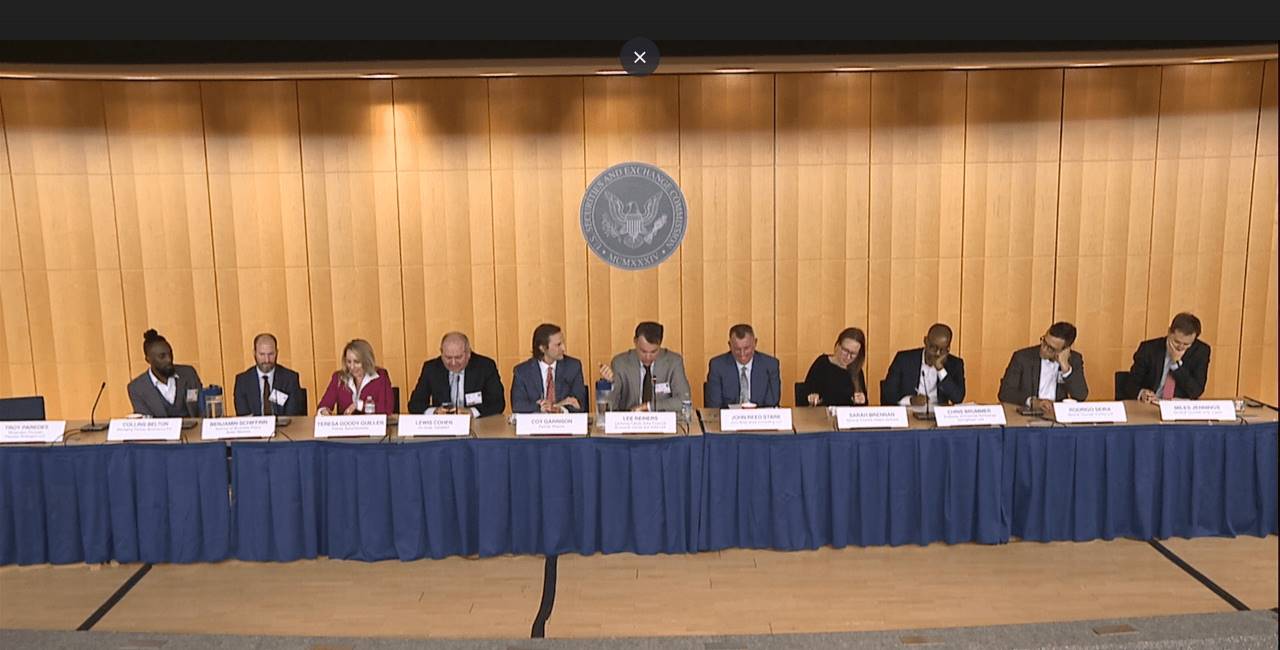Written by: Lawrence
On March 21, 2025, the first SEC Crypto Roundtable was highly charged. When former SEC enforcement official John Reed Stark bluntly stated that "crypto investors have received death threats," the debate about "securities attributes" was no longer just a legal framework dispute, but an ultimate battle for the survival of the crypto industry. Meanwhile, the Bitcoin ETF ended a five-week bleeding cycle with a weekly inflow of $744 million, while Ethereum's on-chain activity hit a historical low point—this dual transformation of regulation and market is reshaping the power landscape of the crypto world.
SEC's "Definition of Rights War": Regulatory Tear Behind Death Threats

First SEC Cryptocurrency Roundtable Panel Members
On March 21, 2025, at the first SEC Crypto Roundtable, former enforcement official John Reed Stark's remarks were like a deep-sea bomb, igniting a decade-long regulatory covert war—"Every time I advocate for stricter regulation in public, I receive death threats from crypto investors." This blatant accusation not only revealed the bloody opposition between regulators and the crypto community but also pushed the ultimate battle over "securities attributes" to a critical point.
[The translation continues in this manner, maintaining the original structure and translating all text outside of <> tags while preserving the content within them.]Ethereum developers have postponed the Prague upgrade for the 153rd time, revealing the sluggishness of technological iteration. In contrast, the Bitcoin ecosystem is experiencing a breakthrough: the Ordinals protocol has driven on-chain NFT trading volume to exceed $1 billion, and the Rune protocol has increased BTCFi locked volume by 300% in a single month. As "Bitcoin programmability" moves from concept to implementation, this self-revolution of the "ancient blockchain" may disrupt the survival logic of "Ethereum killers".
3. The Rise and Game of Sovereign Digital Assets
Putin's declaration that "no one can ban Bitcoin" resonates with Trump's crypto-friendly policies. Russia plans to build a compliant Bitcoin trading system based on the Moscow Exchange (MOEX), and India's digital rupee pilot has already attracted 15% of crypto offshore funds to flow back—this "sovereign digitalization race" is dismantling the hegemony of US dollar stablecoins and may give birth to a new geopolitical financial order.
Conclusion: Finding Certainty in Order Reconstruction
The crypto world in 2025 stands at the fault line where traditional finance collides with decentralization ideals. The SEC's regulatory game, the institutional narrative of Bitcoin ETF, and Ethereum's ecosystem dilemma collectively sketch a landscape full of tension. When death threats and trillion-dollar capital converge on the same battlefield, when the Howey Test from 89 years ago meets the fourth industrial revolution, this transformation has long transcended the technical realm, becoming an epic experiment for humans to reshape the value exchange system.








